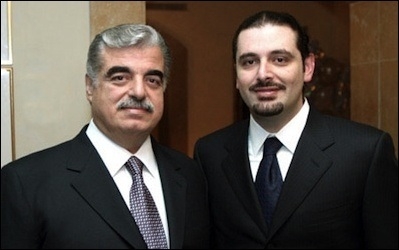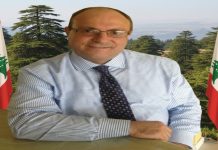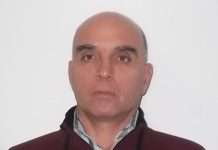The Lebanese, not the Sunni, Saad Hariri
Turki Al-Dakhil/Al Arabiya/February 17/16
After being forced to stay out of Lebanon for a long time, Future Movement leader Saad Hariri returned to Beirut on Sunday to participate in a ceremony to commemorate the 11th anniversary of his father Rafiq’s assassination. Saad’s speech soothed the wounds of people who remain without a president, and suffer from economic problems and the deterioration of services such as electricity-provision and trash-collection. His speech reminded us of Rafiq, Lebanon’s most prominent martyr who built a modern country and wanted it to be independent rather than under Syrian tutelage. Saad’s return to Lebanon will reassure his supporters, and serve the values of which he spoke during his speech, the most significant of which is the concept of a civil state. He spoke out against militant behavior, intervening in other countries’ domestic affairs – unlike what Hezbollah is doing in Syria, Iraq and Yemen – and practises that obstruct the holding of parliamentary sessions and elections.
Challenges
The current challenges in Lebanon are not easy. Al-Nusra Front controls some Lebanese areas, and Hezbollah is engaged in a fierce and bloody battle in Syria. Meanwhile, sleeper cells of Al-Qaeda, the Islamic State of Iraq and Syria (ISIS) and the Abdullah al-Azzam brigades will be a nightmare for security forces and the Lebanese people. Uncontrolled borders and political divisions have helped attract several terrorist groups to Lebanon. Meanwhile, some Lebanese ministers seem to represent Iran rather than their own country. This makes them ministers of Hezbollah, not of the government of Lebanon, which includes more than 25 religious sects. Saad’s return to Lebanon will reassure his supporters and serve the concept of a civil state. Saad’s speech represented moderation, as he did not make sectarian statements and addressed the entire Lebanese people rather than just his Sunni supporters or certain categories of society. This is why totalitarian parties were angry the next day. For example, As-Safir newspaper accused Saad of worsening the presidential crisis. Rival parties seem to forget all his efforts to resolve the crisis. He first nominated Samir Geagea for the post, then talked about nominating Michel Aoun, and finally nominated Suleiman Franjieh. All these attempts yielded no results because Hezbollah wants to subjugate and silence other parties. There is a huge difference between supporters of a state that unites people and respects democracy, the constitution and civil values, and militants whose hands are stained with the blood of innocent people in several Arab countries.
What has happened since Hariri’s assassination?
Abdulrahman al-Rashed/Al Arabiya/February 17/16
The assassination of former Lebanese Prime Minister Rafiq Hariri 11 years ago robbed the country of one its most important leaders, and thwarted his national development plans. Syrian President Bashar al-Assad and his allies killed him because they failed to sabotage his plans via incitement.
Hariri’s ambition was to attract investors to Lebanon, build international institutions’ confidence in the country, and make all Lebanese feel that they are partners in construction rather than competitors over government and parliament posts. He even offered to help Hezbollah develop its areas of influence, thinking that his opponents would realize that they could also benefit from his plans. He convinced prominent Lebanese expats and high-ranking officials in the Gulf, Egypt, Europe, the United States and Russia of his plans, and he even went to Iran more than once to reassure it. He was welcomed by most of these figures, governments and international institutions. Aspects of his project’s success could be seen on the ground, but then Assad decided to kill him even though Hariri had agreed to leave the premiership post and extend the term of then-President Emile Lahoud.
Motives, consequences
Hariri’s killers wanted to keep Lebanon as an open front with Israel in order to exploit the Lebanese people, and so Assad would not have to open the Golan front. Construction in Lebanon stopped since Hariri and other moderate Lebanese figures were killed. Hopes and dreams have died – this was the assassins’ goal. Construction in Lebanon stopped since Hariri and other moderate Lebanese figures were killed. Hopes and dreams have died – this was the assassins’ goal. There is no longer a need to argue about the role of Assad and his allies in that crime, because six years later they committed a much bigger crime by murdering around half a million Syrians. Although assassinating Hariri resulted in disastrous consequences for Assad, the latter still has not learnt the lessons of history. Proof of this is that he committed crimes in Syria when his victims’ blood in Lebanon had not dried yet. Instead of trying to please his citizens when protests against him erupted in 2011, Assad threatened and killed them en masse. Although the Lebanese people bitterly recall Hariri’s assassination at this time of year, they have still not comprehended the importance of commemorating him by reviving his project, and uniting for positive change and against sectarianism.






















